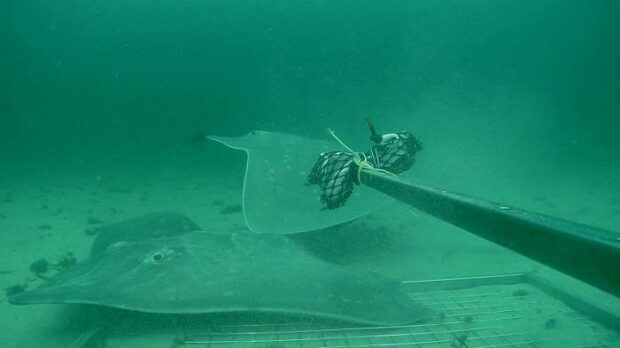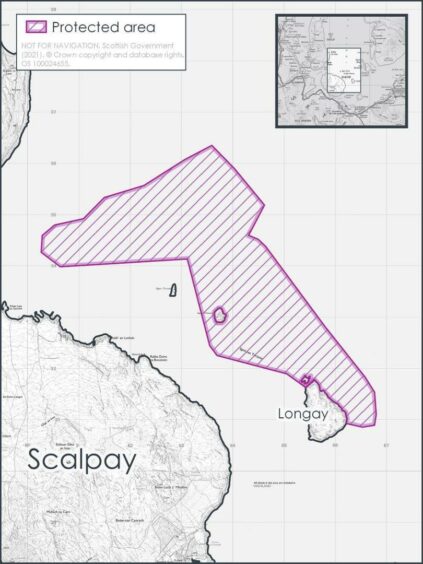Views are being sought on creating a marine conservation area near the Isle of Skye to protect the endangered flapper skate.
The Red Rocks and Longay Marine Protected Area (MPA) was created in March 2021 near the Inner Sound of Skye after Scotland’s largest flapper skate nursery was discovered.
The flapper skate is critically-endangered, so the site is nationally significant to conservation efforts to save the species.
New restrictions were implemented to help safeguard the fish and their eggs from being disturbed.
The new rules included limits on fishing and diving in the area and a ban on underwater construction near the island of Longay.
Little is known about their breeding grounds and habits because of the fish’s rarity. However, their eggs take 18 months to develop and can be sensitive to disturbance during this period.
Flapper skate has historically been active in the north-east Atlantic, but there has been a drastic reduction in numbers during the 20th century.
They can now only be seen along the north coast of Ireland and the west coast of Scotland.
The consultation will take place from February 1 until April 26 to hear the public’s views on the matter.
Commercial fishing of flapper skate was made illegal in 2009
The consultation proposes the removal of scallop diving and recreational diving from the list of prohibited activities.
Emergency protective measures brought in last year will be extended, through a continuation order whilst the consultation is happening.
Scotland’s MPA network covers over 37% of the sea area, exceeding the global target of 30% coverage by 2030.
Environment minister, Mairi McAllan, said: “The flapper skate was once abundant in our seas but is now sadly critically endangered.
“The Red Rocks and Longay Marine Protected Area (MPA) is home to the largest flapper skate nursery to be identified in Scotland – the eggs discovered here are very encouraging but they are also fragile – and, in a climate and nature crisis, we must do what we can to protect them.
“That’s why we moved quickly in March last year to offer protected status to the site where some 100 eggs were found.
“Following the discovery of over 400 more eggs within the original site and more than 700 more eggs to the north of the original site, we took the decision in December 2021 to extend that urgent protection to include the newly discovered eggs.
“While public consultation is ongoing, the Urgent Continuation Order that comes into force on 16 March 2022, will ensure continued protection and help this critically endangered species recover to healthy status in Scottish water.”
To take part in the consultation and have your say click here.

